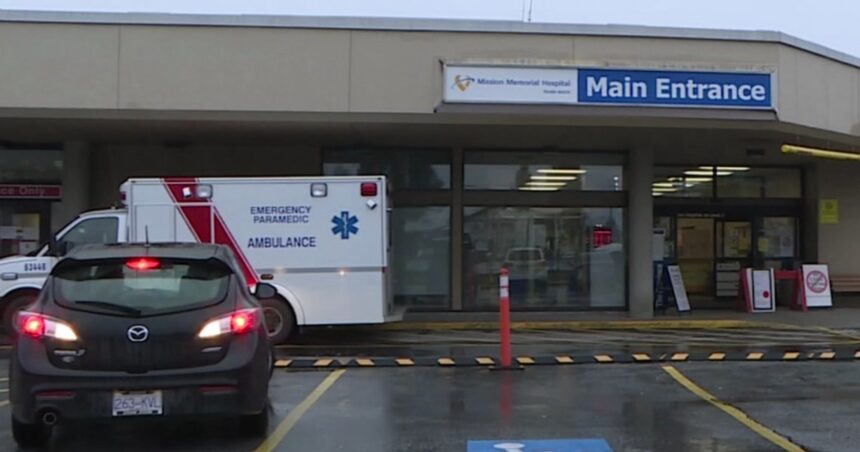In a troubling development that highlights British Columbia’s ongoing healthcare staffing crisis, Mission Memorial Hospital was forced to shutter its emergency department doors overnight Friday due to critical staff shortages. The unexpected closure left residents of this Fraser Valley community scrambling for alternative care options between 7:30 p.m. Friday and 7:30 a.m. Saturday.
“This temporary measure was not taken lightly,” said Fraser Health spokesperson Dr. Victoria Chen in an urgent statement issued Friday afternoon. “We understand the anxiety and inconvenience this causes for Mission residents, but patient safety must remain our paramount concern when staffing levels fall below critical thresholds.”
The closure marks the fourth such incident at Mission Memorial Hospital in 2025 alone, reflecting a worrying pattern in B.C.’s healthcare system. According to provincial data obtained by CO24 News, emergency department closures across British Columbia have increased by 37% compared to the same period last year, with rural and suburban facilities bearing the brunt of these disruptions.
During the closure, patients requiring urgent care were diverted to Abbotsford Regional Hospital, approximately 20 minutes away, where staff were placed on high alert to handle the anticipated increase in patient volume. However, this additional burden on an already strained facility raises serious concerns about the cascading effects of such closures throughout the regional healthcare network.
The British Columbia Nurses’ Union has been sounding alarm bells about dangerous staffing shortages for months. “When we’re operating with skeleton crews under normal circumstances, it takes just one or two sick calls to create a crisis,” explained BCNU regional representative Samantha Gill. “Our members are exhausted, working double shifts, and the burnout rate is astronomical. These closures aren’t just statistics – they represent real risk to patient care.”
Provincial Health Minister David Thompson characterized the situation as “deeply concerning” in comments to CO24 Canada. “We’re implementing both immediate and long-term solutions, including expedited licensing for internationally trained healthcare professionals and increased seats in nursing programs across the province,” Thompson stated. “But we must acknowledge that these measures will take time to yield results.”
Community response has been swift and vocal. Mission resident Sarah Blackwood, whose husband suffers from a chronic heart condition, expressed the anxiety felt by many: “What happens if he has an episode in the middle of the night? Twenty minutes to Abbotsford could be the difference between life and death. We moved here believing we had access to emergency care – now we feel abandoned.”
Local physician Dr. James Henderson points to a systemic issue affecting communities like Mission. “Smaller hospitals have always struggled to compete with urban centers for medical talent,” he told CO24 in an interview Saturday. “But what we’re seeing now is unprecedented – a perfect storm of pandemic burnout, an aging healthcare workforce, and compensation packages that simply aren’t competitive with neighboring provinces or the private sector.”
While Fraser Health has committed to resuming normal operations by Saturday morning, officials could not provide guarantees against future closures. The health authority has established a dedicated hotline for community members with questions about emergency service availability.
As British Columbia grapples with these recurring healthcare disruptions, the fundamental question remains: how many overnight closures will it take before emergency department staffing shortages are treated as the true public health emergency they represent?























